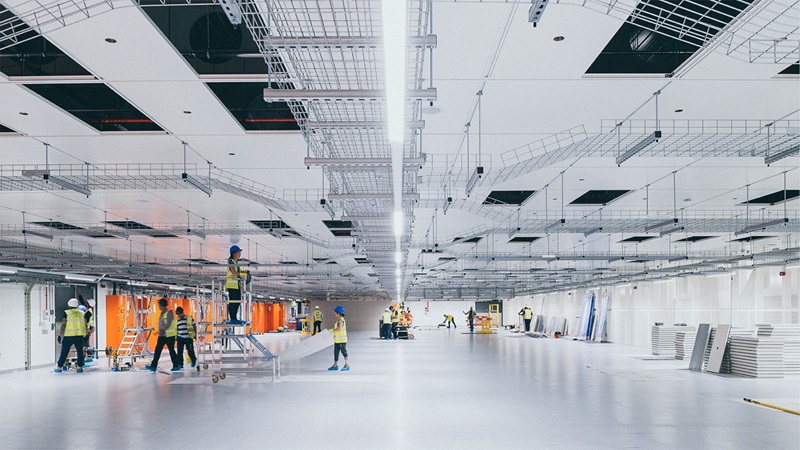Building the future workforce
Construction is a sector offering real opportunity to deliver big change. With a growing global population, the world needs our expertise to provide vital infrastructure such as schools, hospitals, homes, offices and transportation.
While this strong demand means a stable pipeline of work – it also means there is a constant demand for skills - both traditional and emerging. The future of the construction industry lies in the successful attraction and development of the next generation.
Here in the UK, construction is one of the few major sectors of the economy to remain steady throughout the current challenging economic times – with some months even showing growth. However, the collective rise of the workforce has stagnated over the last decade. The pandemic hit and slowed recruitment just as we had recovered from the employment impact of the last recession, which saw 700k leave the industry.
Skills boils down to three things: capability, capacity, and resilience.
We need a capable workforce equipped with the skills and competence to do the job at hand. Construction is a technical industry, requiring highly skilled individuals in often unique roles. Part of this is about having world-class building safety competency to ensure the workforce is enhancing quality while also demonstrating they have the skills for the job.
However, with the face of construction ever changing, it is not just about traditional skills - capabilities must keep up. One such area of change is the fight against climate change, which has rightly taken centre stage. We are training our people to build for the future with the emergence of green skills. Modern methods of construction are becoming the norm – and the next generation are attracted by the prospect of learning the digital skills and sustainable delivery solutions to ensure the sector is part of the climate solution.
As an industry we need the capacity to deliver. This is about getting enough people into the right jobs, at the right time. To do this, we must open routes into the industry – including apprenticeships. Figures released last week showed that the number of apprentices joining our sector has increased for the first time in six years. At Mace, we have been supporting emerging talent for over three decades. We currently have 173 school leaver apprentices and are set to recruit a further 80 this year. While many are kickstarting their career, others are already embedded in the industry but are upskilling, either to progress their career or to shift into another area of the business.
The challenge of capacity is also about being more productive. Some analysts have predicted that hundreds of thousands of additional workers will be needed in the sector within the next few years. While we will undoubtedly need to bolster the workforce, there is also a lot to be said for working smarter. Through enhanced ways of working to keep social distancing, construction productivity improved by 14% against a five-year average during the pandemic. By truly understanding the scope of modern methods of construction, we can also increase our capacity by simply being more productive.
The final element to plugging the skills challenge is to build resilience. This is about capturing talent and increasing mobility of those already within the sector. There is no escaping the fact that we have an aging workforce – approximately one third of our 2.9m strong workforce are over the age of 50 - which will mean the departure of a lot of experience. The Institute for Fiscal Studies has forecast the number of 16-18 year olds leaving secondary education will increase by 18% between 2021 and 2030, while tutors and teachers are declining. This comes at a time when the government has scaled back departmental spending plans for 2024. To provide opportunities for the talented pipeline of learners, we should be encouraging and retraining experienced colleagues to become the teachers of the next generation of our workforce – those who are just starting out, with a thirst for knowledge mixed with practical experience, and a passion to join an industry deserve the well-funded programmes if they are to truly make a difference.
If our industry is to face these challenges head on, we need to work together. Through the convening power of the Construction Leadership Council (CLC), and with support from the Government, there is real opportunity for the construction sector to overcome the skills challenges in order to build to a better future.
The CLC has a priority to improve productivity across the industry through its Next Generation Delivery workstream and has asked for support from the Government to meet its ambitions. Simple policy interventions such as flexibility in the apprenticeship and CITB levy and in recycling any unspent apprentice levy from the sector back into Government sponsored programmes will go a long way in reducing the skills drain.
With such strong demand for highly skilled workers, the impact of those joining our industry cannot be understated. There is real scope to build a lifelong, exciting career – and an apprenticeship scheme is a tried and tested way to develop your future. The opportunities are truly global and it has never been clearer that every single apprentice across our industry, be they site-based or office-based, are making a meaningful contribution to our nation’s economy.
This article was originally published in Construction News.











